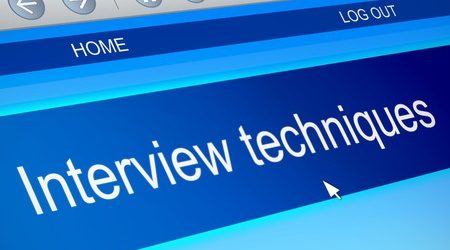
Most people when they prepare for an interview dutifully research the company and diligently do their homework prior to it. Typically they work on these two areas, which they cover in depth:
Company Knowledge: Products, service lines, management, competition, growth trajectories, etc.
Self Knowledge: Resume details, CAR stories, work communication styles, and standard, behavioral and situational interview question preparation, etc.
Check. Check. And Check
Then most people go on the interview and, like a strutting, proud peacock, answer questions demonstrating how much they know and accomplished, aiming to impress the interviewer. They continue asking questions about the job and the company that further demonstrate that indeed they have done their homework and show their interest in the role.
They have a nice little dialogue going and are feeling pretty empowered at this point.
They wrap up the interview with some good questions to ask, put a bow on it, and shake hands thanking the interviewer for their time.
Most candidates, at this point, are feeling good at this stage.
“I know I rocked this one…” they often think as they are exiting the building.
They write and send the thank you letter—still riding the wave of the enthusiasm high.
And, to sum up what happened next, I won’t keep you in suspense…
Nothing happened.
No call. No follow-up from the company. And after an excruciating few days they then receive the dreaded, “Thanks, but no thanks” letter.
What the heck happened? The candidate is frustratingly thinking, “I prepped. I checked all the boxes (you saw me do it earlier) and I had a great interview. I just don’t get it.”
Here’s what happened! The candidate showed…they didn’t tell.
They SHOWED how credentialed they were and their long list of past achievements. And it is a mighty long list. After all, they are good at their jobs, you know.
They SHOWED how much they knew about the company. But they never brought those two bodies of knowledge together.
They never genuinely asked the questions about what pain the employer is experiencing currently and aiming to fix by making this hire. So they never had the opportunity presented to TELL how they can remedy that pain.
They forgot the key ingredient …Identify and address the pain point. This is why most candidates interview all wrong. They miss this incredibly crucial point. The candidate that does address this is more likely to get the job.
Most candidates are so wrapped up in proving themselves as worthy and wanting to demonstrate their awesomeness that they fail to take the focus off themselves to discover the employer’s pain and how this new hire is going to resolve it. They totally missed the mark, plus, if done well, the successful candidate will even be able to discuss other topics related to that pain that will seal the deal as once the employer starts talking about it, more will be revealed.
Most candidates are focused on ‘Am I good enough yet?’ vs. ‘How can I help you fix your problem?’
Getting to the pain takes more than asking, “Why is this job open?”
When a candidate feels they interviewed well but doesn’t get a call back, most of the time it’s because the candidate SHOWED well, but they didn’t quite nail TELLING the interviewer how their experience will address the employer’s pain. Identifying and successfully addressing the pain relevantly during an interview is the key to landing offers.
So on your next interview go in with this added knowledge and see just what a difference it will make.

